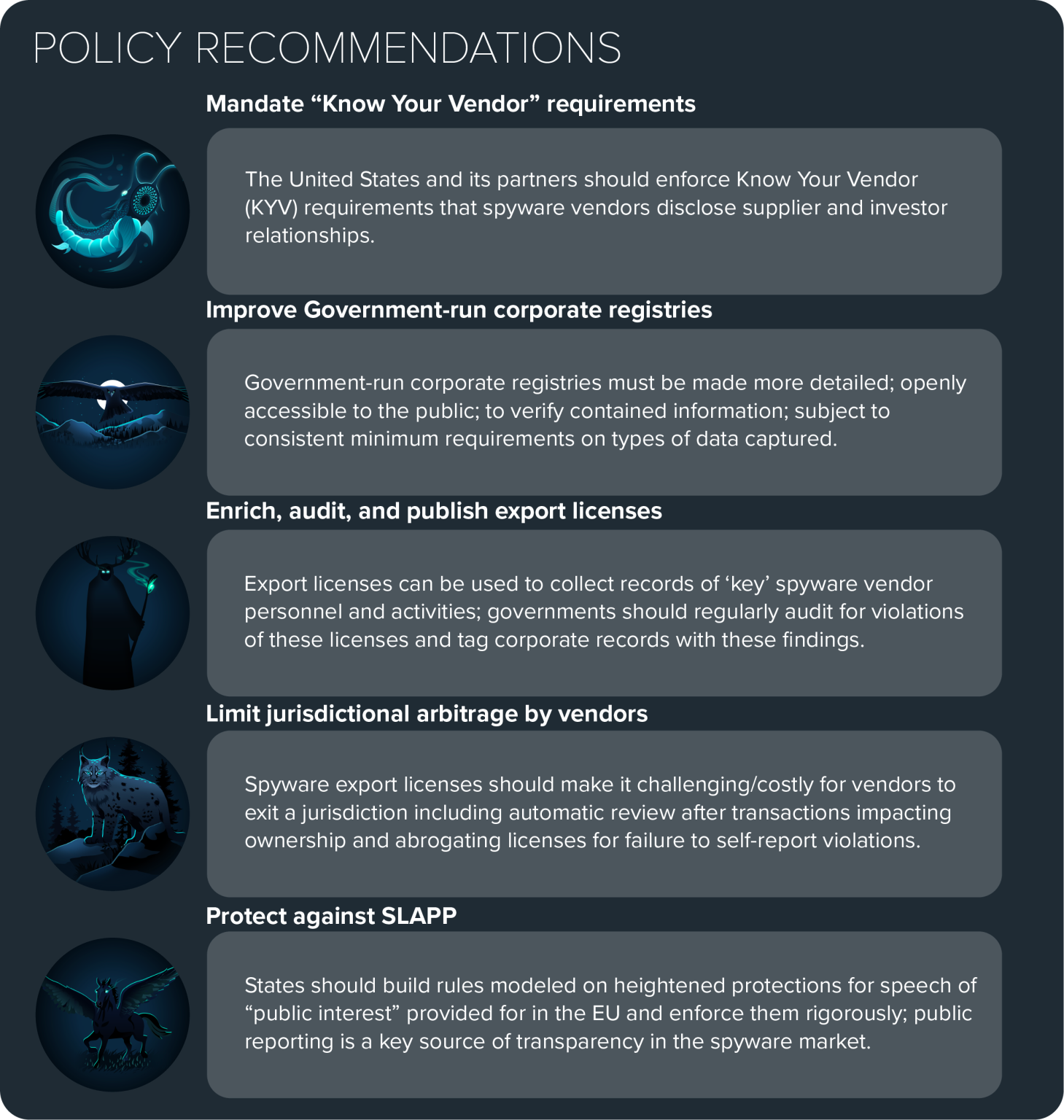
Policy recommendations to produce greater transparency across the market
The global spyware market is flourishing, posing a significant threat to national security and human rights. Particularly dangerous are companies developing programs that enable remote access to devices without the owners’ knowledge. Despite regulatory efforts, many of these companies continue to operate across various countries, hiding behind different names and legal structures.
Researchers from the Mythical Beasts project conducted a comprehensive investigation into the global spyware market to identify its participants and their networks. They focused on companies that have developed and sold software used for illegal surveillance of citizens, journalists, and political opponents. This market remains highly opaque and poorly understood, despite the evident risks it poses to human rights and national security.
Through open-source data analysis, experts examined 435 companies operating in the spyware industry across 42 countries. Their research covered not only developers but also suppliers, partners, and investors. One of the key objectives was to uncover hidden links between these players, offering a clearer understanding of how this market operates and who is behind it.
A prominent trend identified by the researchers is the concentration of companies in three countries: Israel, India, and Italy. These three nations have become hubs of activity in the spyware industry. The Israeli company NSO Group, best known for its Pegasus software, has become a symbol of this market, yet it is only part of a much larger ecosystem.
Researchers also uncovered close ties between spyware developers and manufacturers of surveillance hardware. Such partnerships strengthen the companies’ market positions, enabling them to offer more comprehensive solutions for monitoring. One example is the Intellexa consortium, which unites both software developers and hardware manufacturers.
One of the most intriguing findings of the project is that companies in this market frequently change their legal names. This allows them to evade scrutiny from governments and the media. For instance, the company Candiru has rebranded multiple times over the years, yet continued its activities under new identities.
Many of these companies also engage in what is known as “jurisdiction hopping”—relocating from one country to another to avoid regulation. This practice complicates oversight of their operations and hinders attempts to curb their ability to sell spyware.
Funding for these companies often flows through transnational capital streams. Investors from various countries actively support the spyware market, pouring significant financial resources into it. Paragon Solutions, for example, secured investments from the United States to expand its operations.
The Mythical Beasts project also revealed that much of the market remains hidden from public view. Researchers found that the majority of information about the activities of these companies remains concealed, creating challenges for international regulation and efforts to prevent abuse.
One of the project’s recommendations is the implementation of stricter disclosure requirements for the owners and suppliers of these companies. Only through greater transparency can this market be more effectively controlled.
Another critical step is tightening export licensing. The researchers urge governments to impose rigorous controls on the export of spyware and to require companies to disclose information about their employees involved in the development of such products.
Ultimately, the Mythical Beasts project raises important questions about the future regulation of the spyware market. Without effective international measures, this market will continue to grow, posing a persistent threat to human rights and national security.


